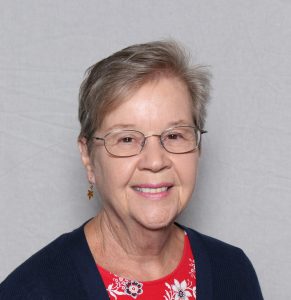The Dark Legacy of Charles Cullen – Killer Nurse
When we think of nurses, we often picture compassionate caregivers dedicated to saving lives and providing comfort. However, the story of Charles Cullen, RN, shatters this image, revealing a chilling narrative of betrayal and death within the walls of hospitals. Known as the “Killer Nurse,” Cullen’s actions left an indelible mark on the medical community and continue to haunt the families of his victims.
Early Life and Career
Charles Cullen was born on February 22, 1960, in West Orange, New Jersey. His early life was marked by tragedy and instability, as he lost both parents by the age of 17. Despite these hardships, Cullen pursued a career in nursing, graduating from the Mountainside Hospital School of Nursing in 1986. He quickly found employment in various hospitals across New Jersey and Pennsylvania, where his seemingly dedicated and hardworking demeanor masked a sinister agenda.
The Killing Spree
Cullen’s killing spree began in 1988 and spanned over 16 years, during which he worked at 9hospitals and 1 nursing home. He confessed to murdering at least 40 patients, although the actual number is believed to be much higher. Cullen employed a variety of methods to kill his victims, often administering lethal doses of medications like digoxin, insulin, and epinephrine. These drugs, when used improperly, can cause cardiac arrest and death, making it difficult to trace the cause back to foul play.
Patterns and Motives
One of the most baffling aspects of Cullen’s crimes is his motive. While some serial killers seek personal gratification or revenge, Cullen’s motives are more complex and elusive. He claimed that he killed patients to alleviate their suffering, yet many of his victims were not terminally ill. Some experts believe Cullen’s actions stemmed from a need for control or a desire to play God. Despite his reasons, Cullen’s ability to move from hospital to hospital, despite suspicions and red flags, highlights significant flaws in the healthcare system’s oversight and reporting mechanisms.
The Investigation and Arrest
Cullen’s downfall began in 2003 while employed at Somerset Medical Center in Somerville, New Jersey. Hospital staff noticed unusual spikes in patient deaths and discrepancies in medication logs. An internal investigation revealed that Cullen was often present during these incidents. The hospital contacted authorities, leading to a comprehensive investigation.
In December 2003, Cullen was arrested and charged with one count of murder and one count of attempted murder. Faced with overwhelming evidence, he quickly confessed to numerous killings. In 2006, Cullen was sentenced to 11 consecutive life sentences without the possibility of parole.
Impact and Legacy
The case of Charles Cullen had far-reaching implications for the medical community. It exposed significant gaps in hospital oversight and the need for stricter reporting requirements for suspicious activities and unexplained patient deaths. In response, many states enacted laws to improve the monitoring and reporting of healthcare professionals, aiming to prevent similar tragedies in the future.
Additionally, Cullen’s story served as a stark reminder of the potential for abuse within trusted professions. It underscored the importance of vigilance, accountability, and systemic checks and balances in protecting vulnerable patients from harm.
Conclusion
Charles Cullen’s dark legacy continues as a cautionary tale within the medical community. Most healthcare professionals are dedicated to saving lives and providing compassionate care. Cullen’s story reminds us of the importance of robust oversight and accountability measures.
By learning from the past, we can work towards a safer, more transparent healthcare system, ensuring that the horrors perpetrated by the “Killer Nurse” are never repeated.
If you’re curious about my direct role in Charles Cullen’s case, please click below to read my original blog post.
Are you intrigued about working on criminal cases?
If so, you MUST attend:

Pat Iyer is president of The Pat Iyer Group, which develops resources to assist LNCs in obtaining more clients, making more money, and achieving their business goals and dreams.
Have you heard the most recent podcasts on Legal Nurse Podcast? The show is in its 8th year, putting it in the top 1% of all podcasts for its longevity. Watch our podcast on YouTube at http://LNC.tips/YouTube.
Join our Facebook group, LNC Business Growth Circle, to be part of our LNC community.
Pat’s related websites include the continuing education provided on LNCEU.com, the podcasts broadcast at podcast.legalnursebusiness.com, and writing tips supplied at patiyer.com.
Get all of Pat’s content in one place by downloading the mobile app, Expert Edu at www.legalnursebusiness.com/expertedu. Watch videos, listen to podcasts, read blogs, watch online courses and training, and more.


